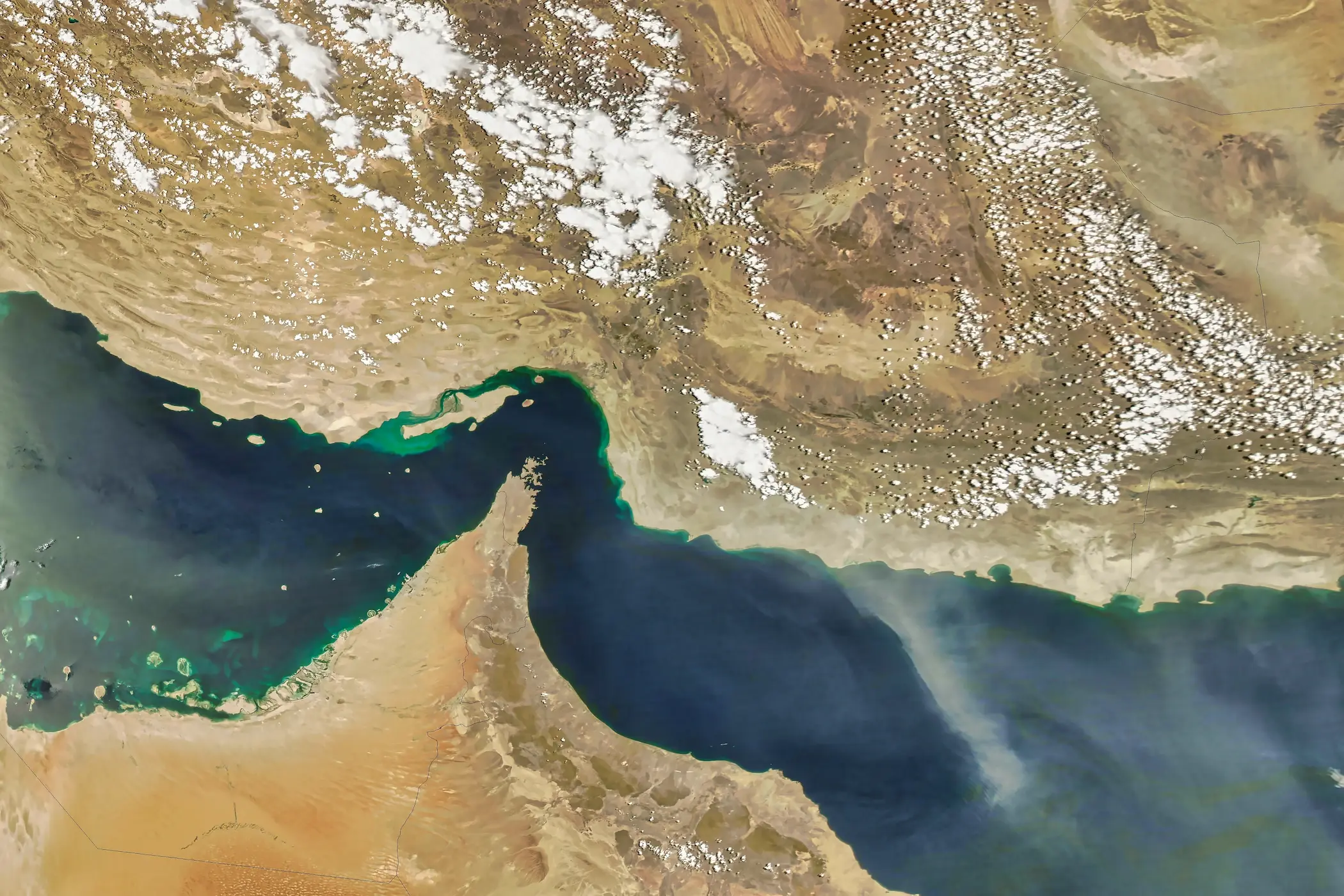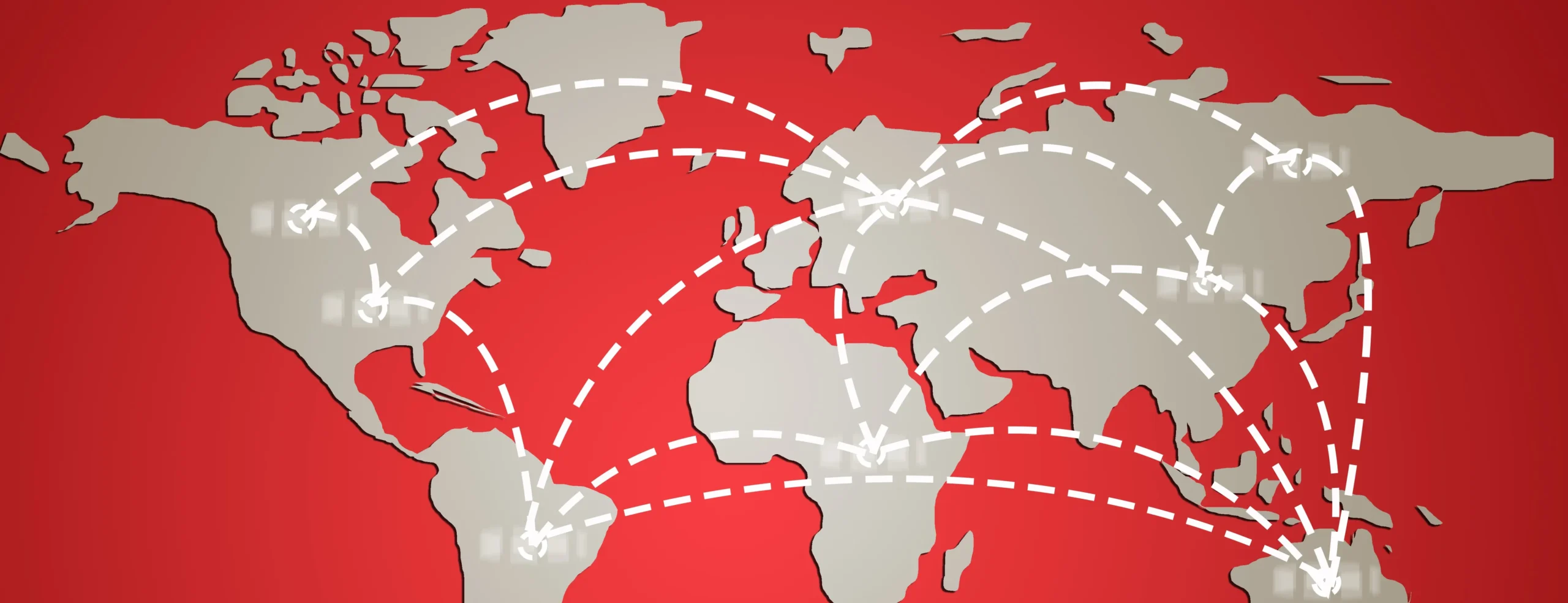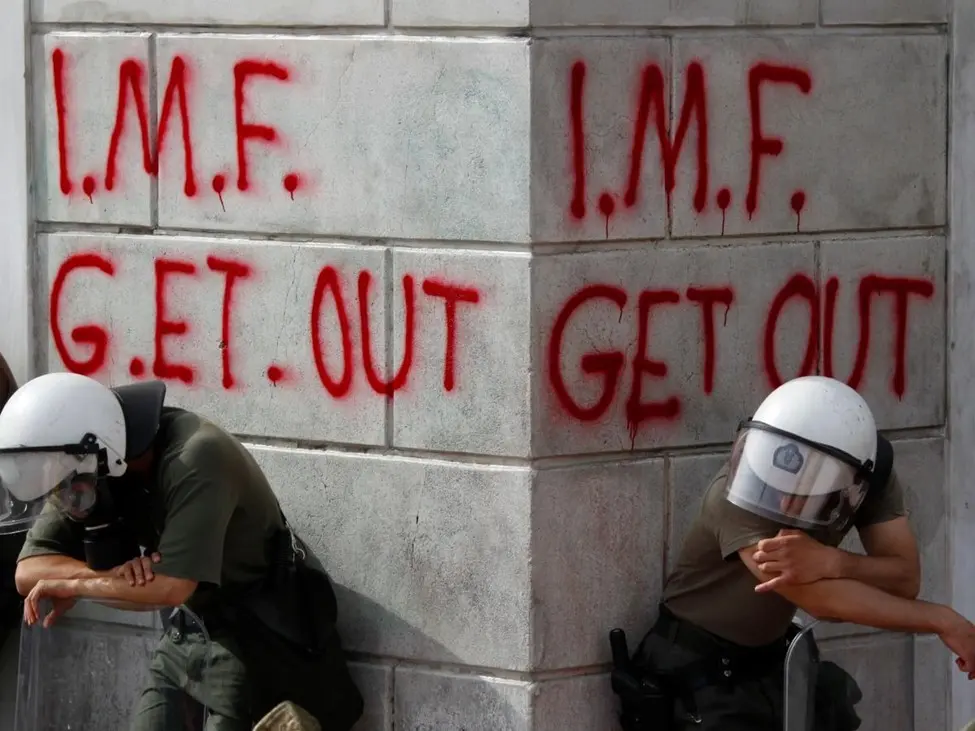19 Jun 2025
What If: Iran Closed the Strait of Hormuz?
The Strait of Hormuz – a narrow, indispensable artery through which nearly a fifth of the world’s oil and a third of its liquefied natural gas (LNG) flows– stands on a cliff. As geopolitical tensions intensify across the Middle East, fuelled by escalating Iran-Israel tensions and the shadow of direct United States (U.S.) involvement, the once-unthinkable threat of its closure looms larger than ever with Iran’s threat to close or block the Strait. In spite of the catastrophic global implications of such an act, the volatile depths of this potential crisis will be explored, unravelling the motives that could push Iran to choke this global lifeline, exposing the monumental security and geopolitical fallout, and revealing the catastrophic economic shockwave that would consume nations far beyond the region.
13 Aug 2024
Stock Market Decline: More Trouble for the Global Economy?
The stock market dropped significantly on Aug. 5, 2024, following a period of high volatility. Concerning economic indicators from the United States (U.S.) and an unexpected interest rate hike by the Bank of Japan were major factors in this collapse. Major world indexes experienced a severe drop, but they recovered within 24 hours. Even with this rapid recovery, the incident may be a hint that the world economy is about to slow down.
23 May 2024
China’s Economic Slowdown: Strategic Responses and Global Implications
China, despite being the second-largest economy globally, encounters challenges such as a distressed real estate sector, reduced domestic consumption, and high debt levels. In response to these obstacles, the government is enacting policies aimed at encouraging domestic spending, mitigating the real estate downturn, and cultivating innovation to ensure sustainable development. The way these measures are implemented will not only impact the economic trajectory of China, but also that of the entire world.
17 Apr 2024
Rise of Regional Investment Blocs: A New Era of FDI Fragmentation
The world economy is at a turning point, with a visible tendency to reverse the integration that was seen in the last decades of the 20th century. Growing scepticism about the benefits of globalisation, particularly in developed countries, accompanied the sluggish recovery after the Global Financial Crisis (GFC). This uncertainty led to a purposeful policy change away from integration known as geoeconomic fragmentation (GEF). A variety of policies impacting capital flows, worker mobility, and trade are included in GEF. GEF policies are motivated by a variety of factors, such as correcting internal economic inequities, economic competition, and national security concerns. Foreign direct investment (FDI), which has been declining recently, particularly in emerging countries, is another indication of how this trend toward GEF has affected FDI and the need for quick action to reverse it.
27 Mar 2024
The Power Orbit: The Space Internet Race and its Repercussions on Developing Nations’ Ability to Exploit Space
Globally, an estimated 4.2 billion people lack access to the internet, highlighting a major technological disparity. This digital divide disproportionately impacts rural and remote communities, hindering their access to essential healthcare, education, and economic opportunities. Traditional terrestrial infrastructure expansion often faces financial and geographical limitations in these regions. As satellite technology becomes increasingly accessible, space-based internet solutions emerge as a potential alternative.
However, the lowering cost of satellite production and launch, coupled with the availability of technological complexities of operating in low-earth orbit (LEO) create a competitive landscape. Developed nations and corporations are vying for dominance in LEO, raising concerns about the future accessibility of this technology for developing countries. This article investigates the challenges arising from this intensifying competition and its potential consequences for the digital inclusion of developing nations.
30 Nov 2023
An Open Letter to COP28
Dear leaders, negotiators, and decision makers,
This year, "Unite-Act-Deliver" is the slogan of COP28, a pivotal event in the international endeavour to combat climate change. The increasing number of climate disasters in 2023, wherein severe weather phenomena have wreaked devastation on a global scale, shows the urgency of the need to act. The United States, Hong Kong, Greece, Libya, Turkey, Bulgaria, Spain, Taiwan, Pakistan and China were all affected by hurricanes, storms, droughts, and flooding. The floods that struck Libya and Pakistan were particularly devastating, resulting in substantial destruction of infrastructure and loss of life, and increasing sea levels and heat surges that have been felt globally have also occurred.
Furthermore, the adverse effects of climate change on food and water security on a global scale have impeded progress towards attaining the Sustainable Development Goals. In particular, food systems are accountable for one-third of worldwide green gas emissions and have slowed agricultural productivity for the past five years which entails the transformation of food systems to achieve net-zero emissions.
9 Sep 2023
Futurescapes Issue 1 – The AI Revolution: A New World Order
Amidst the intricate tapestry of our contemporary world, we find ourselves living in a “world of risks” and existential threats that are escalating faster than our capacity for response and remedy. As a result of our tendency to fixate on addressing the ever-growing number of issues that our societies face, we often neglect the importance of envisioning future risks and their potential consequences for human survival and growth.
The significance of future studies and early warning systems transcends the mere scope of risk mitigation and preparedness. It encompasses an ethical obligation to the forthcoming generations an obligation to plant the seeds for a future we ourselves may not see, but one we bestow as an enduring legacy. This form of responsibility, some may even say “altruism”, manifests clearly in the work of those who are dedicated to this field of research. As we recognise the pitfalls of short-sightedness, especially in recent years where questions about the future are infinite, we also acknowledge this as an opportunity to study and improve our approach to the future.
In this inaugural issue of Futurescapes, Al Habtoor Research Centre unveils a meticulously crafted “early warning” on the looming spectre of misusing artificial intelligence capabilities. Within the pages of this publication, we have committed our unwavering focus to confront this critical turning point spurred by expanding technological capacities and the potential relinquishment of human control over these very capacities. In an era where scientists and scholars are impelled to develop AI systems that transcend their conventional roles of aiding and empowering humanity, a growing unease takes root: the potential for these systems to transcend their limitations and penetrate the intricate realms of emotion and distinctly human tasks. Thus, an alternate trajectory unfurls — one that goes beyond traditional automation, aspiring to metamorphose humans into remotely guided automatons.
Within the pages of this issue, we delve into the transformation of robots into entities evocative of human traits and the simultaneous mechanisation of human functions. Furthermore, we explore other pivotal themes, venturing into uncharted landscapes and unconventional dimensions to imagine different potential futures in the new era of AI.
22 Jun 2023
Rise of Medical Robotics Market: What About Safety?
Automation is becoming more common in a lot of different fields all over the world. The rise of automation has been caused by a mix of new technologies, changes in the economic conditions, and changes in society. The healthcare sector was not far from such automation where the market for medical robots has grown a lot in recent years, especially after the COVID-19 Pandemic, and it is likely to grow even more in the coming years. Medical robots help with surgeries, make medical logistics easier, and give doctors and nurses more time to focus on patients. As they become more important, the question is whether medical robots can replace doctors or just help them do their jobs better and keep patients safe.
17 Apr 2023
What to Expect at COP28
The stakes are high at the upcoming UN Climate Change Conference (COP28), which will be hosted in the United Arab Emirates in November 2023. The United Nations’ Intergovernmental Panel on Climate Change’s (IPCC) latest publication on the state of climate in the world, the Sixth Assessment Report, warns that countries are way off track to limiting warming to 1.5 degrees above pre-industrial levels to avoid the worst impacts of climate change. The science clearly shows it is no longer a question of “if” human activities are the main cause of the disruption to nature - they certainly are - but there is also explicit evidence that we also have affordable and effective solutions that require immediate action and a serious commitment to changing our energy system. While past COP summits have attempted to reach consensus and binding international agreements on emission reduction strategies and goals, previous IPCC reports have repeatedly stated that climate plans need to be more ambitious. Despite this, countries are still lagging behind, even on the goals that are considered insufficient. With this, a number of pressing issues are expected to be at the forefront of the Dubai COP.
10 Apr 2023
IMF Policies in Countries in Crises: Helping of Harming?
The world is probably facing one of the worst debt crises in decades. The disruption of global supply chains caused by Covid-19, which resulted in shortages of many items and higher prices, caused more pressure on the international balance of payments and led to this high-level debt crisis. The Russia Ukraine conflict added to these inflationary pressures, and the United States (US) Federal Reserve's move to raise interest rates to combat US inflation has driven the dollar's value to its highest level in twenty years. As a result, countries that borrowed money in dollars now have more expensive debt since their currencies are worth less, which drives up the price of their imports even more. Consequently, developing countries turned to the International Monetary Fund (IMF) for financial support as a result of all these factors in order to deal with their debt crises and economic instability. The IMF in its turn grants loans to countries subject to the adoption of a number of harsh and rigorous economic reforms. Because of its austerity policies and conditionality, the IMF has come criticized and the question of whether the countries in crises actually benefit or suffer harm from the IMF has been raised. To evaluate the success of IMF policies, examples of countries that have benefited from IMF policies need to be examined to answer this question.
4 Apr 2023
Turning Up the Heat: Climate Litigation & Civil Disobedience in 2023
Climate litigation has been a steadily growing trend in recent years with the number of litigation cases multiplying globally in 2022. In 2023, a new wave of climate lawsuits are stirring concerns among big industries, corporate stakeholders and governments and causing businesses to increase attention to precise reporting and accountability for emissions. As more regulators globally are developing rules that require large companies to disclose their climate-related risks, more companies are beginning to comply with the requirements and integrating the new regulations in their planning; demonstrating the critical nature of this shift. While the race to curb global heating gets tighter, the spotlight is growing on actors that are exacerbating the fossil-fueled climate crisis. At the same time, the gap between the concrete actions that companies and governments should be taking and where they currently stand is still huge. This makes climate litigation a more appealing channel for frustrated environmental activists and citizens. What impact does increased climate litigation have on businesses and governments? And what happens when legal paths yield unsatisfying results?
4 Apr 2023
China: The Upcoming Hegemon
China has been considered as the main threat to the current world order maintained by Western powers. It became clear when the U.S. for the first time identified Beijing as its “number one challenge” and NATO members included the same country in its “strategic concept”. China has long advertised for itself as a trading partner for many countries with no political interests. For years, world leaders have accepted this propaganda created by the Chinese and perceived the Asian giant as only an economic competitor. However, it seems that Beijing has decided to break up with its old strategy of “hiding our capabilities”, known as taoguang yanghui (韬光养晦).
Lately, China has been engaging in diplomatic initiatives such as the peace plan aimed at ending the war in Ukraine as well as brokering the process of normalizing relations between Iran and Saudi Arabia, leading to Western apprehension from rising Chinese diplomatic power as they understand that altruism has no space in politics. Analysts have been trying to identify the new role to be played by Beijing relying on the concepts coined by William T.R. Fox which concludes that China is not a superpower but it is only a regional power for not being able to deploy military forces overseas. Nevertheless, we argue, contesting prevalent IR theories, that in the new world order, economic might could be enough weapons to extract global political influence. In other words, the contemporary definition of a superpower is different from the one coined by Fox.











